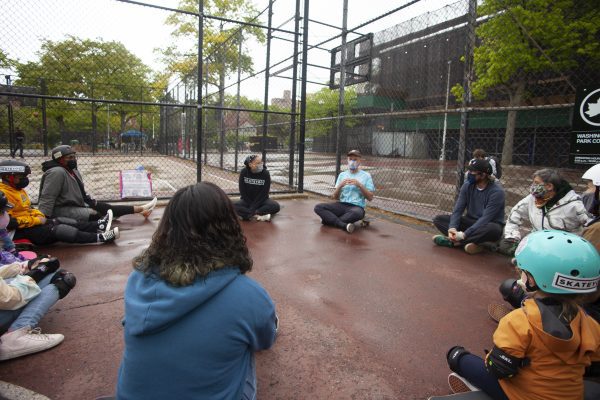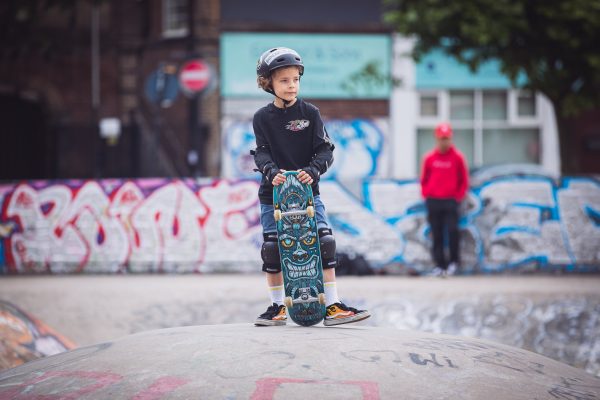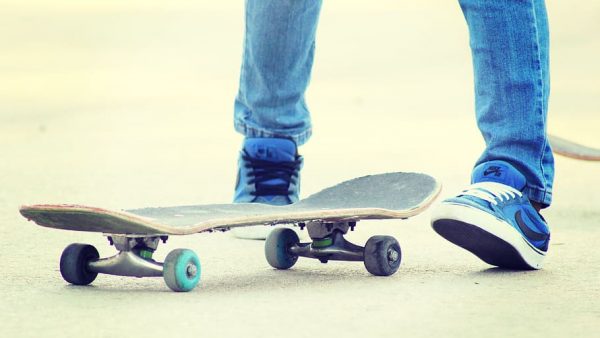Skateboarding has evolved into a vibrant and widely celebrated sport that continues to captivate people of all ages. However, the influence of this sport lies in the instructors, who strive to enhance the instruction for every student. These instructors create a unique and empowering content and learning environment that helps students of all levels achieve their goals and reach new heights over time. Read this article for more information on how to enhance your skills in few years.

Whether you’re a complete beginner or a seasoned skateboarder looking to improve your skills, skateboarding taught a lot of things. With its proper guidance, it can be a transformative experience.
Join us as we unveil a wealth of insights and expert tips for improving skateboarding lessons success and maximizing the learning experience for younger skaters. Whether you’re an instructor striving to improve the learning experience for every student or a young person eager to progress, this article is your key to unlocking the full potential of every skate ride. Let’s drop in and discover the path to skateboarding excellence, honing both your social skills and mental health, while developing problem-solving skills to overcome challenges in your skateboarding journey.
Enhancing The Impact Of Longboarding Classes Key Takeaways
The following are the key takeaways when you embarked on a journey:
- Experienced and qualified instructors are crucial for effective skateboarding classes.
- Limit class sizes to provide personalized attention to each student.
- Emphasize safety first with proper protective gear like helmets, knee pads, elbow pads, and wrist guards.
- Start each class with a warm-up to prevent injuries and prepare students physically.
- Break down skills into progressive steps, starting with the basics and gradually advancing to more complex skateboard tricks.
- Demonstrate techniques to help students visualize and understand how to perform them correctly.
- Encourage repetition and daily practice outside of classes to reinforce learning.
- Provide individualized feedback to identify areas for enhancement and offer personalized guidance.
- Foster a positive and supportive environment to boost confidence and motivation.
- Set achievable goals for each lessons and celebrate students’ accomplishments.
- Use video analysis to review students’ trick and monitor their progress.
- Expose students to various skateboarding terrains to expand their skills and confidence.
- Incorporate freestyle sessions and friendly competitions to keep classes engaging and fun.
- Enhancing the impact of longboarding classes involves teaching invaluable lessons learned from skateboarding.
- Helping beginners start skateboarding with confidence.
Don’t forget to share your experience with us!
Knowledge Of Enhancing Competencies
Improving the success of longboarding lessons involves creating a positive and engaging learning environment that encourages skill development and fosters a passion for the sport.
One of the best ways to enhance your skateboarding skills is to start skateboarding regularly, as practice and experience provide invaluable lessons. Here are some tips to help get the most out of board riding workshops:

- Experienced and Qualified Instructors: Ensure that the instructors leading the classes have extensive skateboarding experience and are qualified to teach. They should be able to communicate effectively, feel what the students need, break down techniques, and provide constructive feedback to the students.
- Small Class Sizes: Limit the number of students per class to ensure that each participant gets enough attention and personalized feedback. Smaller class sizes allow instructors to identify individual strengths and weaknesses and tailor their instruction accordingly. By doing this, you are making a united culture.
- Safety First: Emphasize the importance of safety equipment, such as helmets, knee pads, elbow pads, and wrist guards. Make it a rule that all participants must wear protective gear throughout the class.
- Warm-Up Exercises: Start each class with a proper warm-up to prevent injuries and prepare the students physically for the activities ahead. Include in your work stretching exercises that focus on the muscles used in skateboarding.
- Progressive Learning: Break down skateboarding skill levels into progressive steps. Start with the basics like stance, balance, and pushing, and then gradually move on to more complex skateboard tricks and maneuvers. Build upon previously learned skills to help students feel a sense of accomplishment and motivation.
- Demonstration and Visualization: Instructors should demonstrate proper techniques and skateboard tricks to help students visualize, love, and understand how to perform them correctly in the skate park. Visual learning can be very effective in skateboarding.
- Encourage Repetition and Practice: Encourage beginner students to practice outside of classes. The more they repeat the movements and skateboard tricks, the better they will become. Offer guidance on practice routines and exercises they can do at home or the skate park.
- Individualized Feedback: Provide specific feedback to each student based on their progress and challenges. Skateboarding taught a lot of things to its riders. By identifying areas for improvement and offering personalized guidance, these learners can greatly accelerate the learning skateboarding step by step process.
- Create a Supportive Environment: Foster a positive and supportive atmosphere in the class. Show your student a sign of respect. Also, encourage students to cheer for and support their peers’ progress. A friendly and encouraging environment can boost confidence and motivation.
- Set Goals and Celebrate Achievements: Help students set achievable goals for each class and celebrate their accomplishments. Recognizing progress, no matter how small, can increase motivation and determination.
- Video Analysis: Record students’ performances and use video analysis to review their techniques. This can help them understand their mistakes and see their progress over time.
- Varied Terrain: If possible, expose students to various skate park terrains, such as ramps, bowls, and street park obstacles. This exposure can expand their skills and confidence in different environments.
- Incorporate Freestyle Sessions: Allow some time during classes for students to explore their creativity and practice freestyle skateboard tricks on a skate park. This can enhance their confidence and style.
- Stay Engaging and Fun: Incorporate games, challenges, and friendly competitions to keep the classes engaging and fun. Make learning enjoyable, and the students will be more likely to stay committed.
By implementing these strategies, skateboarding taught in workshops can become more effective, enjoyable, and successful in helping participants improve their skills and passion for the sport.
Conclusion
You have embarked on a journey and learned that effective skateboarding classes at the Garage Board Shop in East Los Angeles can make a profound difference in the growth and development of riders of all skill levels and different backgrounds. By adhering to the principles outlined in this guide, instructors can create a positive, engaging, and safe learning environment that fosters community, encourages diversity, and instills a passion for the sport of skateboarding, which is a dynamic physical activity enjoyed by individuals of most people and backgrounds. Whether you’re a beginner just starting on a skate park bench or a seasoned rider striving to improve your abilities, our classes offer invaluable lessons to improve your skills and enjoy the parks. The Tony Hawk Foundation supports our commitment to providing a space where young people can discover and embrace the thrilling experience of skateboarding.

Throughout this article, we explored the essence of experienced instructors from the Pullias Center, small class sizes, and safety measures to ensure a solid foundation for learning. By breaking down skills into progressive steps and encouraging repetition and practice, students, including aspiring rider, can build confidence and mastery in their abilities, encompassing overall health, low risk, and coordination.
Moreover, we emphasized the significance of individualized feedback, goal-setting, and celebrating achievements to keep motivation levels high. Incorporating video analysis and exposure to various terrains can further accelerate trick acquisition and expand creativity, especially for young riders interested in school sports. This approach helps in skill development and addresses concerns such as pain, proper standing techniques, and the essence of listening to one’s muscles. Overcoming the fear associated with trying new maneuvers is an integral part of the learning process, and our emphasis on a supportive environment with clear signs of progress can make this journey smoother.
Above all, we emphasized the value of creating a supportive and enjoyable atmosphere that nurtures the skateboarding community, fostering mental resilience and physical well-being. Through friendly competitions, freestyle sessions, and interactive learning approaches or way of education, students can find joy in the learning process and cultivate a lifelong love for skateboarding. This game combines mental agility, physical energy, and the expressiveness of an art form.
As the wheels keep turning, remember that board riding is not just a sport—skateboarding taught us how to live. It is a lifestyle. By applying the learnings from topics such as this, both instructors and students can embark on a journey of constant growth and exploration in the exhilarating world of board riding. So, lace up your shoes, grab your personal board, and keep on doing practice and exercise. Let’s show a skating filled with passion, skill, and a whole lot of fun while learning new things minimizing the risk of injury, and maximizing the overall benefits of skateboarding as a safe place for education and part of personal development, regardless of age.
Frequently Asked Questions (FAQs):
Last Updated on July 4, 2024 by Raymond Sy Tamco
DISCLAIMER (IMPORTANT): This information (including all text, images, audio, or other formats on FamilyHype.com) is not intended to be a substitute for informed professional advice, diagnosis, endorsement or treatment. You should not take any action or avoid taking action without consulting a qualified professional. Always seek the advice of your physician or other qualified health provider with any questions about medical conditions. Do not disregard professional medical advice or delay seeking advice or treatment because of something you have read here a FamilyHype.com.